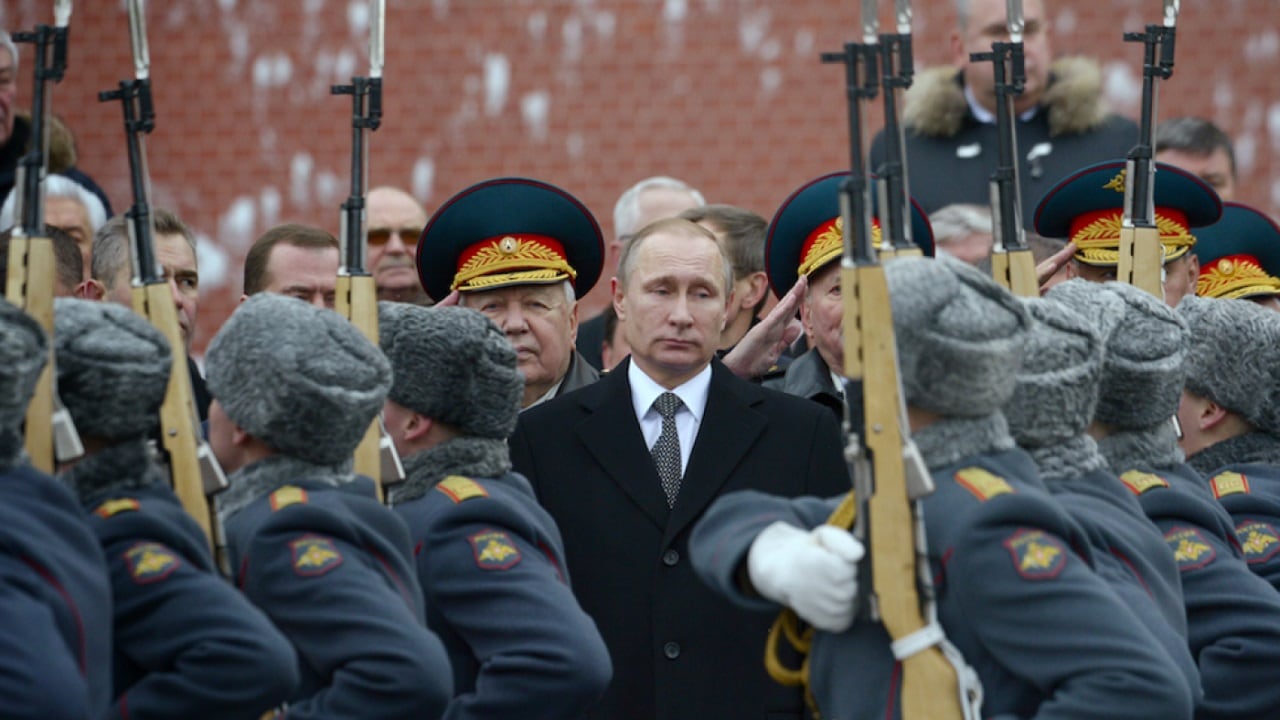Here Are the Sanctions Placed On Russia So Far – On Monday, Russian President Vladimir Putin signed a decree recognizing two eastern regions of Ukraine – Luhansk, and Donetsk – as independent. It gave the Russian leader the go-ahead to invade Ukraine under the guise of a “peacekeeping mission” in which Russian troops would protect Russian-speaking people in the regions.
Putin soon sent in those troops to Ukraine, but the scope of their efforts appeared to be much broader than a simple peacekeeping mission, with a series of bombs dropped across Ukraine including in the capital city Kyiv.
It prompted President Joe Biden to follow through on threats of imposing sanctions on Russia.
What Economic Sanctions Did the U.S. Place on Russia?
On Thursday, the United States Treasury announced “unprecedented and expansive sanctions” against Russia.
Here’s what they entail:
The Treasury promised in a statement that the unprecedented sanctions on Russia would have “both immediate and long-term effects on the Russian economy and financial system.”
“The U.S. Department of the Treasury’s Office of Foreign Assets Control (OFAC) today imposed expansive economic measures, in partnership with allies and partners, that target the core infrastructure of the Russian financial system — including all of Russia’s largest financial institutions and the ability of state-owned and private entities to raise capital — and further bars Russia from the global financial system. The actions also target nearly 80 percent of all banking assets in Russia and will have a deep and long-lasting effect on the Russian economy and financial system,” the statement explained.
Listed under “Major Economic Actions,” the Treasury revealed that two of the biggest financial institutions in Russia – Public Joint Stock Company Sberbank of Russia (Sberbank) and VTB Bank Public Joint Stock Company (VTB Bank) would be the focus of new sanctions.
The sanctions stop the two institutions, which hold a majority of all bank assets in Russia, from cooperating with any institution in the United States. The order requires all U.S. financial institutions to reject future transactions that involve Sberbank.
VTB Bank, which is the second-largest financial institution in Russia, will have any assets held in American financial institutions frozen and made inaccessible to the Kremlin.
“This is one of the largest financial institutions Treasury has ever blocked” the statement explains, adding that it demonstrated that the U.S. is “following through on its promise to delivering severe economic costs.”
Under Directive 3 of Executive Order 14024, a series of debt and equity prohibitions were placed on major state-owned and private companies in Russia. The move was designed to limit Russia’s ability to pay for the invasion of Ukraine.
Specifically, the sanctions prohibit the creation of new equity and debt of more than 14 days maturity by U.S. persons or people within the United States to Russian state-owned institutions or entities that operate within the financial sector in Russia. The order also specifically referenced 13 major Russian firms that are “critical to the Russian economy.”
Sanctions on Russian Elites and Putin’s Allies
A series of sanctions were also placed on “elites close to Putin” who “continue to leverage their proximity to the Russian President to pillage the Russian state, enrich themselves, and elevate their family members into some of the highest positions of power in the country at the expense of the Russian people.”
Those individuals targeted include:
- Sergei Sergeevich Ivanov, the son of Sergei Borisovich Ivanov
Special Presidential Representative for Environmental Protection, Ecology, and Transport and one of the closest allies of President Vladimir Putin.
- Andrey Patrushev, the son of Nikolai Platonovich Patrushev
Secretary of the Russian Federation Security Council and a close associate of President Vladimir Putin.
- Ivan Igorevich Sechin, the son of Igor Ivanovich Sechin
Chief Executive Officer and Chairman of the Management Board of one of the biggest publicly traded oil companies in Russia.
- Alexander Aleksandrovich Vedyakhin
First Deputy Chairman of the Executive Board of Sberbank.
- Andrey Sergeyevich Puchkov (Puchkov) and Yuriy Alekseyevich Soloviev
Two of the highest-ranking VTB Bank Executives
Europe’s Response
British Prime Minister Boris Johnson called Putin’s aggression a “flagrant violation of the sovereignty and integrity of the Ukraine.” As well as lighting up his official residence in Ukrainian colors, the British prime minister met with his cabinet on Tuesday to discuss the scope of “new sanctions on Russia.”
Johnson proposed a series of measures including seizing the assets of Russian banks in the country and excluding them from the British financial system, implementing laws to stop Russian companies raising finance in the UK, and stopping the export of high-tech items and oil refining tools and equipment.
European Union nations also promised a range of sweeping sanctions against Russia and “those involved in this illegal act,” according to European Commission President Ursula von der Leyen.
Russia Closed Off to the World
While the sanctions may still go further, as it stands, Russia is effectively closed off from much of the rest of the world in terms of financial transactions. A combination of financial sanctions and the blocking of high-tech items to Russia will cause short-term and long-term pain for the country, potentially disrupting the country’s defense and aerospace sectors.
Financial sanctions have already caused a major drop in its currency’s value, the Russian ruble. On Thursday, the ruble hit a record low against the United States dollar. It prompted the Bank of Russia to issue announce a series of measures designed to “maintain the financial stability and business continuity of financial institutions” in the country. Moscow also blocked trading on the Moscow Stock Exchange after Russian assets saw severe volatility.
Jack Buckby is a British author, counter-extremism researcher, and journalist based in New York. Reporting on the U.K., Europe, and the U.S., he works to analyze and understand left-wing and right-wing radicalization, and report on Western governments’ approaches to the pressing issues of today. His books and research papers explore these themes and propose pragmatic solutions to our increasingly polarized society.

